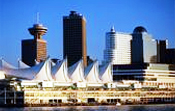Dear Compatriots,
As Chinese citizens, surely you long for kind attention and help from the Chinese Government when you come up against problems while travelling, working, studying or residing abroad or when your legitimate rights and interests are violated. In order to help you solve problems and ease sufferings, we have compiled this Guide to China's Consular Protection and Services Overseas, which gives you a better understanding of consular protection and services provided by Chinese diplomatic and consular missions abroad.
I. Questions Often Asked by Chinese Citizens in Seeking Consular Protection and Services
1. What are consular protection and services?
By consular protection, it is meant that when the legitimate rights and interests of a Chinese citizen or legal person are violated in a receiving State, the Chinese diplomatic or consular mission there will reflect his/her request and urge the related authorities of that state to handle the issue in a fair, lawful, friendly and proper way through diplomatic channels in accordance with international conventions, bilateral treaties or agreements and the related laws of China and the receiving State.
Consular services refer to the services related to international travel documents, notarization, authentication, etc., provided by Chinese diplomatic or consular missions abroad to Chinese citizens in the receiving State in accordance with the relevant Chinese laws and regulations.
2. Can a person who left China with a Chinese passport but is now naturalized in the state of his residence or has acquired its nationality enjoy consular protection from local Chinese diplomatic or consular mission?
According to the Nationality Law of the People's Republic of China (PRC), the Chinese Government does not recognize dual nationalities. A Chinese citizen residing abroad automatically loses Chinese nationality once he/she voluntarily acquires a foreign nationality, and thus no longer enjoys consular protection provided by the Chinese diplomatic or consular mission overseas.
3.What should be done if a Chinese passport is lost, stolen or seized?
Please report it immediately to the local police bureau and if necessary, apply to the country of your residence for exit visa. We would like to draw your attention to the fact that it is against the law to buy or sell, transfer, forge, or intentionally damage the Chinese passport, and the offender may be held legally responsible for it.
4.How can I seek help when being stopped from entering, exiting or transiting a country of destination with a valid visa?
You should first of all truthfully state the purpose of your entry, exit or transit while trying to get to know the reasons for the obstruction. If your request is still not met by the related department, you may ask to contact the local Chinese diplomatic or consular mission for assistance. Chinese consular officers will find out how things stand from the relevant authorities, convey your request as appropriate, and lodge representations if necessary. But we cannot guarantee that you will surely be let go. If the representations fail, you should accept the decision made by the local authorities. If you are really unfairly treated, please make a point of collecting and preserving evidence for such further use as making a complaint or handling the matter by going through legal procedures in future.
5. What is to be done if I have a traffic or industrial accident during my stay abroad?
If you have a traffic or industrial accident overseas, you should immediately report it to the local police or inform your employer, and request that your relatives and friends or the Chinese diplomatic or consular mission in the country be notified. You may also ask consular officers to urge the competent authorities in that country to punish the offender or assist you in seeking compensation from the insurance company (in case you are insured with the insurance company) through legal means.
6. What is to be done if a family member dies abroad?
(1) You may get information about the cause of death and his/her legacy (or his/her testament) from consular officers or your relatives and friends. You may also acquire such documents as death certificate from the local authorities.
(2) If the death involves a criminal case which has already entered legal proceedings in the locality, you should employ a lawyer and follow the court trial closely. At the same time, you may ask a consular officer to pay close attention to this case and to sit in at the court session. If you are displeased with the court session or the judgement, you may seek a lawyer's assistance in filing an appeal, or you may also ask the consular officer to convey your opinions to the local department concerned.
(3) You may seek a trip to the country concerned to deal with the remaining problems concerning the case. However, you will have to cover all the expenses arising therefrom (such as international and national travel and board and lodging). You should apply for and secure visa for the trip by yourself.
(4) If you cannot go to the said country to deal with the remaining problems, you may entrust your relatives or friends in the country to look after such matters as the cremation, the return of ashes and personal effects of the deceased. If local laws and regulations permit, you may also entrust a consular officer to deal with such matters, so long as you provide in advance a written letter of authorization issued and notarized by a notary office in China.
7. Where can I get help if a family member is missing or kidnapped abroad?
You should inform the Chinese diplomatic or consular mission there as soon as possible of such information as name, sex, age, occupation, facial features and address of the missing or kidnapped person. At your request, a consular officer will ask the competent authorities of the country to look for the missing person or rescue the kidnapped.
8. What can I do if I am unfairly treated by my employer or if my employer deliberately defaults on paying me wages in the country of my residence?
If you are dispatched overseas by a Chinese agency, you should first of all report what has happened to that agency and ask the latter to negotiate a solution with your employer. If you are employed on your own behalf, you may try to seek a solution through consultation with the employer in accordance with the contract and the related local laws and regulations. If a solution is not reached, you may file a lawsuit in the local court and at the same time, request proper assistance from consular officers in the lawsuit.
9. What rights is a litigant entitled to if he/she is discriminated against and unfairly treated while in custody or in prison or if he/she is given a heavier punishment or penalty than what he/she deserves in the country of abode?
He has the right to seek a meeting with consular officers from the Chinese diplomatic or consular mission there, inform them of how things stand and ask them to make representations regarding his/her case.
10. How can I get help if my belongings are stolen, robbed or seized by others?
You should report the case immediately to the local police and request the arrest of the criminal. If necessary, you may also inform the Chinese diplomatic or consular mission in the country of the related matter and ask for help.
11. How can I inherit the legacy located outside China?
(1) According to the Law of Succession of the People's Republic of China, "for the inheritance of property outside of China by a Chinese citizen, the law of the place of domicile of the decedent applies for the inheritance of movable property; the law of the place where the property is located applies for immovable property." You should familiarize yourself with the relevant legal provisions of the country where the property is located. Though consular officers may provide you with general legal information, you have to ask local lawyers for more comprehensive and detailed legal information, and the consular officers may assist you by recommending a local lawyer.
(2) You may go personally through the relevant formalities for inheritance in the place where the property is located or you may entrust this to a lawyer or your relatives or friends.
(3) Before going through the formalities for inheritance, you should get the relevant notarial documents ready, such as the "certificate of birth" of legatee, "certificate of kinship", "certificate of marriage", "certificate of adoption" and "letter of authorization of entrustment". All the notarial documents should be accompanied by translation in the language acceptable to the user state. The above-mentioned documents should be handed to the trustee after the authentication by the Consular Department of the Ministry of Foreign Affairs of the PRC or by the authorized provincial (prefecture or autonomous region) foreign affairs office authorized by the Foreign Ministry, and by the diplomatic or consular mission of the relevant country in China. According to the relevant laws and regulations, Chinese diplomatic and consular missions overseas are not supposed to authenticate directly the notary certificates produced by the notarial offices in China.
(4) As a rule, you should pay a certain fee to the trustee or lawyer after you have inherited the property.
12. What procedures need to be completed in order to get back to China if I entered or stayed illegally in a foreign country without any valid certificate or source of income?
You should report truthfully to the Chinese diplomatic or consular mission in that country your authentic and detailed personal information, including your name, date of birth, place of birth, occupation, home address, telephone number, description about your illegal exit from China or illegal stay in the country concerned. Only after the public security organ of your former domicile in China verifies and confirms your identity and your family members have paid for your return to China, can the relevant consular officer issue the home-bound travel document to you.
13. How can I get consular protection or protect myself in case of any emergency like political turmoil, military conflicts or natural disaster, in the country of my residence?
(1) It is advisable for you to promptly contact the Chinese diplomatic or consular mission nearby and get yourself registered and acquire the latest relevant information.
(2) You should protect your own important documents and records, including your passport, exit record, insurance and bank account records, etc., and keep them in a safe and reliable place.
(3) You should check whether your passport and visa are still valid. If you need to renew your passport, please go through the formalities at the Chinese diplomatic or consular mission without delay.
(4) It is advisable for you to have two copies of your important documents no matter you keep them at home or carry them around with you. Meanwhile, you should make sure that your car is safe and works properly, with a necessary amount of spare food and drugs.
II. Consular Protection and Services That Chinese Diplomatic or Consular Mission Overseas Can Provide
* When your legitimate rights and interests are violated in the country of your residence, or when you are involved in economic, labor and other civil disputes or criminal cases, and you have resorted to law for protection of your rights and interests, you may inform the Chinese diplomatic or consular mission in that country of what has happened and seek necessary assistance therefrom.
* The above-mentioned assistance includes preliminary legal counsel and general guidance on how to proceed with legal proceedings in the country of your residence; recommendation of local lawyers and translators at your request to assist you in the lawsuit; and sitting in on court trial as appropriate.
* If you are detained, arrested or serving a prison sentence, the diplomatic or consular mission may visit you at your request.
* If an accident happens to you, the diplomatic or consular mission may inform your family of the accident or your injury and may also provide necessary assistance to you or your family in the course of seeking compensation through mediation or legal means.
* When a serious natural disaster such as an earthquake occurs, or an emergency such as political turmoil, war or an unexpected incident takes place in the receiving State, the diplomatic or consular mission will assist you in leaving the dangerous area if necessary.
*The above-mentioned assistance includes preparing necessary travel documents for you and arranging, as far as possible, means of transport for your departure.
* When you come across such a problem as endangers your livelihood, the diplomatic or consular mission may contact your family at your request so as to get timely financial support for you.
* If your relative or friend is missing or not heard of abroad for a long time, you may tell the Chinese diplomatic or consular mission there what you know about the matter and ask for help in locating the person. To facilitate the search, you need to provide the diplomatic or consular mission with detailed information about the person (including name, age and identity, physical features and relevant clues to the person during his/her work, study, residence or stay in the foreign country).
* The diplomatic or consular mission issues, replaces, reissues and renews travel documents and makes endorsement to individual records on the travel documents for Chinese citizens overseas in accordance with relevant laws and regulations of the PRC. No other organizations are entitled to handle the above-mentioned.
* The diplomatic or consular mission provides notarial and authentication services for Chinese citizens in accordance with relevant laws and regulations of the PRC, and handles registration of marriage between Chinese citizens provided that it does not contravene the laws and regulations of the receiving State. However, the diplomatic or consular mission may not directly authenticate any notarial certificate produced by any notary office in China.
III. Consular Protection and Services That Chinese Diplomatic or Consular Mission Cannot Provide
* Not to apply for visa or residence permit for you in the receiving State.
* Not to find a job or obtain a working permit for you in the receiving State.
* Not to intervene in court proceedings or cover up your unlawful acts beyond the laws and regulations of the receiving State.
* Not to arbitrate economic, labor and other disputes between you and others or produce any letter of an arbitration nature.
* Not to act on your behalf in settling economic, labor and other disputes between you and others.
* Not to get for you treatment better than what is given to local people when you are in hospital, in detention or in prison.
* Not to pay for your lawyer's fees, hotel, medical and travel (air/sea/land travel tickets) expenses, or any other expenses.
* Not to accommodate you on the premises of diplomatic or consular missions or to take care of your belongings.
* Not to purchase tax-free commodities for you.
IV. Correct Understanding of Consular Protection
1. What obligations do you need to undertake when requesting consular protection?
When you request consular protection from the diplomatic or consular mission, you must provide true information. False statement not only makes it difficult for consular officers to help you safeguard your legitimate rights and interests, but also leads to corresponding legal liability on your part.
2. It is necessary for Chinese citizens to remove certain misunderstandings on consular protection.
Misunderstanding 1: Chinese diplomatic or consular missions overseas are naturally a sanctuary for Chinese citizens.
Some people think that a Chinese national may seek asylum at a Chinese diplomatic or consular mission in a foreign country whenever involved in a criminal case in the receiving State. This is not correct. A diplomatic or consular mission is not entitled to offer sanctuary to nationals of its own country or a third country. A Chinese national in difficulty overseas may ask the Chinese diplomatic or consular mission there for assistance, but is not allowed to take refuge on the premises of the diplomatic or consular mission, because far from helping solve the problem, it will complicate matters and may even cause diplomatic dispute.
Citizens of a country may seek assistance from their diplomatic or consular mission, but they may not willfully make trouble and disturb normal order there, or even lay siege to diplomatic or consular mission or threaten consular officers. All these acts contravene relevant national and international laws, and serious offences are punishable by relevant laws. Article 19 of the Regulations of the PRC on Administrative Penalties for Public Security stipulates that whoever disturbs the order in government offices, organizations, enterprises or institutions and makes it impossible for the work there to go on smoothly shall be "detained for a maximum of fifteen days, fined a maximum of RMB 200 yuan or given a warning". There are also stipulations in the Vienna Convention on Diplomatic Relations and Vienna Convention on Consular Relations that the premises of the diplomatic or consular mission shall be inviolable and the person of diplomatic or consular officer shall be inviolable, and that the receiving State is under a special duty to take all appropriate steps to protect the premises of the diplomatic or consular mission against any intrusion or damage and to prevent any disturbance of the peace of the mission or impairment of its dignity.
Misunderstanding 2: Consular protection is omnipotent.
Consular protection provided by diplomatic or consular mission is limited and constrained by many circumstances and factors: First, diplomatic or consular missions do not have administrative and still less judicial power in the receiving States so they may not use compulsory measures. In fact, when providing protection to their nationals, whether by paying visits or by making representations, the diplomatic or consular missions are, as a rule, following norms of international law and international practice to urge the law enforcement agencies of the receiving States to act in accordance with the law and handle the cases in a fair and just way. Secondly, consular protection is very complicated since it involves international law and laws of the sending and receiving States. In providing consular protection to Chinese nationals, diplomatic or consular mission may not exceed the terms of reference of consular duties.
Misunderstanding 3: The consular officers concerned could be sued if the consular protection provided by diplomatic or consular mission failed to produce the desired results.
Diplomatic representations conducted by a diplomatic or consular mission when providing consular protection are diplomatic acts, which might or might not succeed. Citizens may not sue the diplomatic acts for failure in diplomatic representations. Such is a legal provision generally adopted by all countries. Article 12 of the Administrative Procedure Law of the PRC stipulates that a court shall not accept actions initiated by citizens, legal persons or other organizations concerning state acts in areas like national defense and foreign affairs. The Law on Administrative Reconsideration does not apply to diplomatic acts either.
V. Help Yourself
* You should make preparations before going abroad, including application for passport and visa, purchase of air (bus or steamer) tickets and all necessary insurances, understanding the custom, climate, law and order, laws and regulations of the country of destination as well as acquiring the address and telephone number of the Chinese diplomatic or consular mission there. If the country or region of destination has no diplomatic relations with China, it is necessary to get the address and telephone number of the Chinese diplomatic or consular mission that takes charge of the affairs related to Chinese nationals there. You may seek information on the country of destination from the provincial or municipal foreign affairs office or public security organ in the place where you live, or the diplomatic or consular mission of the destination country in China. You may also visit the website of Ministry of Foreign Affairs for relevant information. (www.mfa.gov.cn)
* Taking drugs, internationally prohibited articles and products made from protected animals and plants across borders are strictly forbidden. If you take a large amount of cash with you, you must declare it at the customs according to the relevant regulations. It is not advisable to carry baggage or articles for strangers.
* Upon arrival at the destination country, you should register in time at the Chinese diplomatic or consular mission in the country if you are not a temporary visitor, so that in case of any emergency, the diplomatic or consular mission may contact you and your family in time.
* You should get to know the fire, police, ambulance and other emergency call numbers in order to get assistance from relevant authorities in case of emergency.
* You should take good care of your passport, important documents, cash and precious articles. It is better to separate them from other baggage to prevent theft, robbery or loss. Please make copies of your passport, visa and ID card, and keep several passport photos with the copies separately from the original documents for any emergency use.
* Please take necessary preventive inoculation in advance and carry the inoculation certificate (yellow-cover book) with you.
* At present, some countries have strengthened their airport inspection on medicine carried along by passengers entering the countries. If you need to bring medicine for personal use while traveling, you should take care to bring only a proper amount and take with you the directions for use in English (including the ingredients of the medicine), doctor's prescription and the receipt for purchasing the medicine, so as to avoid unnecessary trouble.
* You should abide by local laws and regulations and respect the local custom and habits.
* You should strictly observe the traffic rules, and pay attention to safety on road.
* You should guard against theft, fraud, blackmail, robbery and attack. You should keep a calm and low profile and do not speak loudly in public places. When you go out, especially in the evening, do not carry with you too many such things like camcorder and walkman that might attract robbers. Do not take a large amount of cash with you, nor should you keep too much money where you stay. Do not get involved in others' quarrel in the street or on the bus. Do not leave valuables in visible places in your car. If your tyre goes flat, you must lock the doors of your car before repairing it. Do not take a taxi in a dark place. Do not open your door to strangers and do not let your child tell strangers that the parents are not home. Do not give strangers a lift. Do not walk with strangers. If you find something on the street, hand it over to a policeman to avoid being blackmailed or framed. Do not change your money in the black market. Put your documents, wallet and passport separately, and do not put them in plastic bags that can be easily broken with an edge tool. You are advised to install an anti-theft door and an alarm system. If a policeman wants to check your passport or other documents, you should ask him to show his badge first and write down his police badge number and his car plate number. Do not pay fines to policemen on the spot, you should ask for the fine ticket and pay your fine at the bank or other designated place.
* Notes
* Chinese diplomatic or consular missions abroad charge fees for some consular service items according to the regulations and hand in the whole amount to the state treasury.
* The Consular Department of the Ministry of Foreign Affairs is responsible for the explanation of this Guide.
|






